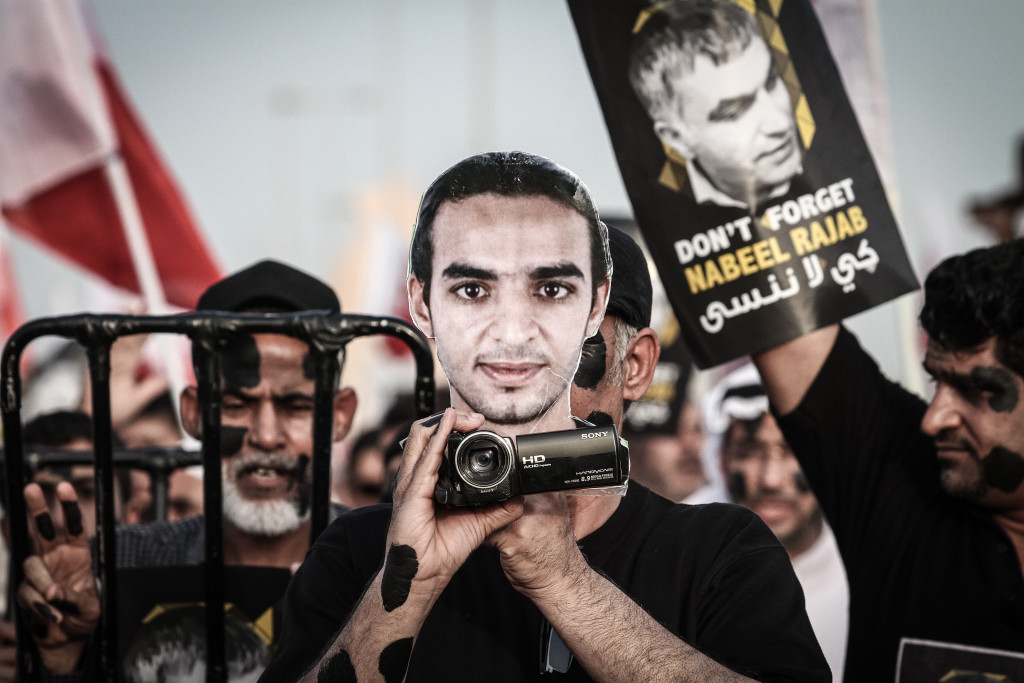In a speech to earlier this week to the 26th session of the United Nations Human Rights Council in Geneva, the High Commissioner for Human Rights, Navi Pillay, stated that strong journalism is vital to any democratic society—it is what fuels individuals to participate in political life. Journalists are essential to “the civil, political, economic, social and cultural rights of all”. Unfortunately, such opportunities are being denied to the people of the Kingdom of Bahrain.
Amidst great turmoil in Bahrain, those attempting to document the situation on the ground often become targets themselves. Bloggers, photographers and journalists have experienced tremendous media suppression that has often ended in arrest, torture and, in some cases, death. As stated in a country report by Reporters Without Borders, Bahrain’s laws governing the press restricts the purview of the media, allowing up to five years of imprisonment for speaking against the King, taking photographs of pro-democratic rallies, undermining the ideas of the state, or promoting democratic change in any capacity. The statistics on press freedom in Bahrain are also less than positive. According to Freedom House—an independent watchdog organization– Bahrain scored an 86 for its level of press freedom, with zero being the best score and 100 being the worst. Bahrain also ranked 165 out of 179 countries in the Press Freedom Index according to Reporters without Borders in 2013.
It was reported by the Gulf Daily News that the Premier holds press freedom in high regard. He stated that the voices of journalists are “indispensable” and that “press freedom is guaranteed in the constitution and by the law”. He went so far as to state that harm to any journalists would be considered harm to the people as a whole. Yet the Bahraini government’s treatment of journalists paints a vastly different and troubling picture.
One individual affected by this lack of press freedom is Hussain Hubail, an award-winning freelance photographer, who was arbitrarily arrested in July 2013. Some of his most acclaimed work includes a photograph of protesters running through tear gas, for which he won a prize from the Al Wasat newspaper. While incarcerated, Hubail was forced to listen to the torture of another prisoner, Mohammad Hassan, an acclaimed blogger who was also detained as a result of his documentation of the situation on the ground in Bahrain.
Hubail was charged with calling for illegal gatherings, inciting hatred against the regime, inciting people to ignore the law and misuse of social media. In the eyes of the Bahraini government, simply documenting the truth in Bahrain was turned into an action requiring imprisonment. If documenting the reality in Bahrain carries punishment, then the reality is that there are no journalistic rights in Bahrain. Hubail was sentenced to five years in prison in April 2014 but will appeal his conviction on the 22nd of this month.
The complete disregard for press freedom in Bahrain will only provide the government with the pretext to commit future human rights violations and silence any criticism of the government at all costs. Yet there will always be those brave few who—like Hubail—will continue to fight for basic human rights at all cost. If the Bahraini government wants to show it values press freedom, then it must repeal those laws that limit it and free Hussain Hubail on June 22, 2014.
–
Michelle Migdalovich is an Advocacy Intern at ADHRB.





